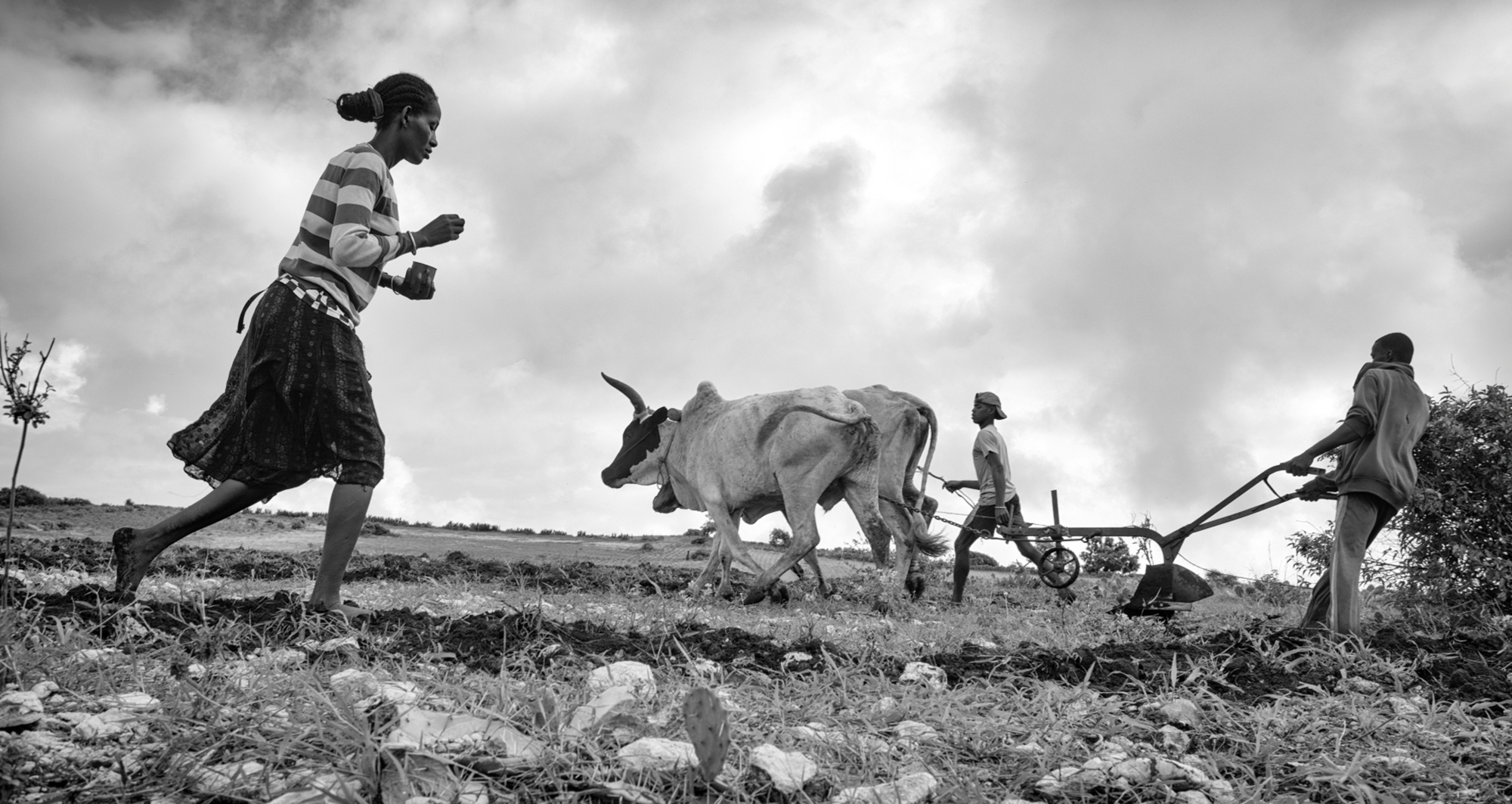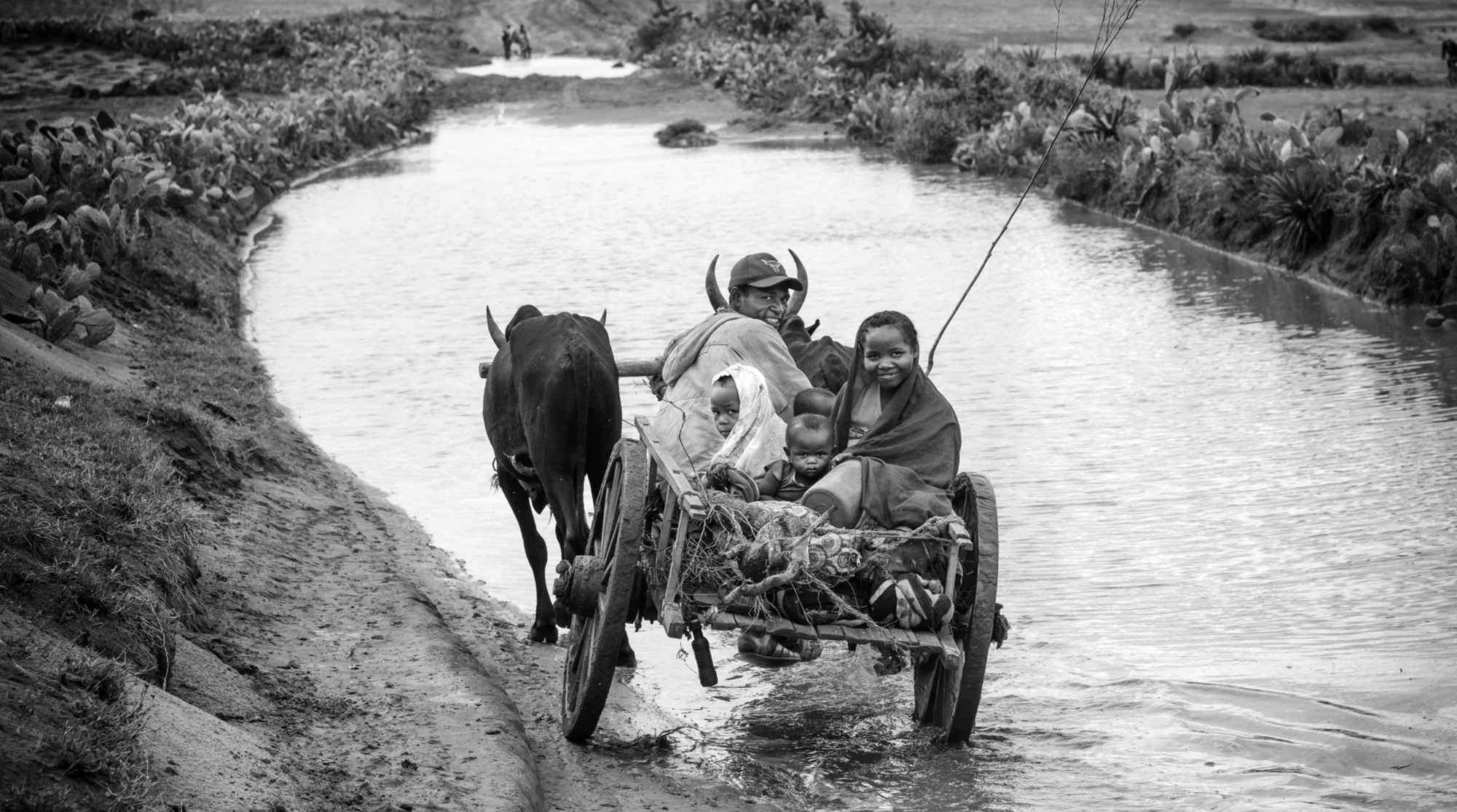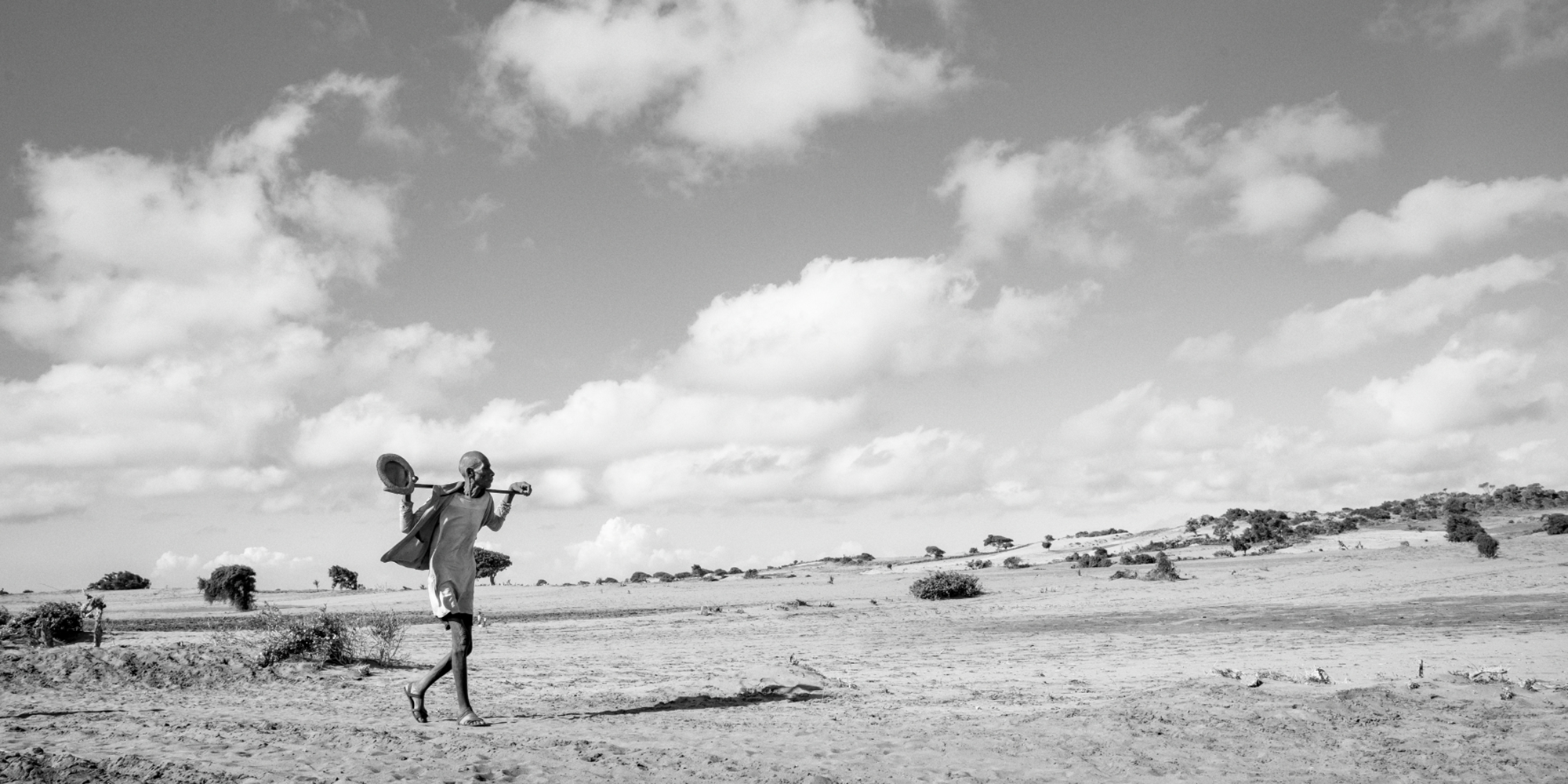Just ahead of the UN climate change conference COP26, human rights organisation Amnesty International called for global leaders to urgently address the climate crisis and protect countries most vulnerable to its effects, demonstrating its urgency by reporting how southern Madagascar is experiencing the worst drought in more than 40 years, with over one million people on the brink of famine.
Agnès Callamard, Secretary General of Amnesty International, said: “Madagascar is on the frontline of the climate crisis. For one million people, it means a drought of catastrophic proportions, and violations of their rights to life, health, food and water. It could mean dying of starvation. This is happening now.”
In its report released on Wednesday, “It will be too late to help us once we are dead”, Amnesty documented the human rights impact of climate change and highlighted how those who are least responsible for climate change are disproportionately affected by its impacts.
The south of Madagascar has experienced four consecutive droughts, the latest occurring from November 2020 to January 2021, and has experienced below-average rainfall for five years in a row.
Researchers from Amnesty International visited the southern region of Madagascar in March 2021 to collect information from people affected by the drought and food insecurity, finding that the drought posed an imminent threat to their right to life, right to health, right to food and rights to water and sanitation.
One woman interviewed in March, who had lost two children said, “They suffered from hunger… and they died. We hardly eat anything.”
The United Nations World Food Programme and Food and Agriculture Organization reported in May that more than one million people in Madagascar were facing high levels of acute food insecurity.
For the first time since the methodology was introduced five years ago, the Integrated Food Security Phase Classification (IPC) for Madagascar reported that nearly 14,000 were in a state of “catastrophe” – the highest type of food insecurity under the five-step scale of the IPC.
The reason that this drought caused so much hunger is because the majority of the people in the southern region rely on subsistence agriculture and rain-fed crops for their food.
 A woman sows seeds while young men plough the fields. (Photo: Amnesty International / Pierrot Men)
A woman sows seeds while young men plough the fields. (Photo: Amnesty International / Pierrot Men)
Is it climate change, or just a drought?
The Amnesty report acknowledges that droughts in the south of Madagascar are chronic, that the region has a history of famine and periods of hunger, and that there is no specific scientific attribution study that directly links the drought in Madagascar to climate change.
However, the report also notes that climate data and scientific evidence suggest a relationship between climate change and the drought, citing evidence that shows that global climate change has probably contributed to higher temperatures and increasingly erratic rainfall in the country’s semi-arid Deep South.
In a World Bank analysis of Madagascar, it was reported that in the southern region of Madagascar, the average annual rainfall had declined over the past century, and average temperatures had increased in the past 15 years, due to global warming. The Amnesty report explained how these are conditions which elevate the likelihood of droughts.
The Intergovernmental Panel on Climate Change stated in a special report in 2019 that the “frequency and intensity of droughts has increased in some regions”, including in southern Africa since pre-industrial levels due to global warming, and that, “the frequency and intensity of droughts are projected to increase, particularly in the Mediterranean region and southern Africa”.
The United Nations has said Madagascar is on the brink of experiencing the world’s first climate change famine.
Along with the scientific data, locals in the region confirmed the changes in the climate, with one telling Amnesty researchers: “I’ve noticed a lot of changes. Before, the rain would fall from September to December, and we would start cultivating in February. This year, the rain only fell in February. It’s been two years that there is nothing growing in our fields.”
 A family returning from the market in town, along a road 'flooded' by the recent exceptional rain in Maroalomainty, Madagascar, 2021. (Photo: Amnesty International / Pierrot Men)
A family returning from the market in town, along a road 'flooded' by the recent exceptional rain in Maroalomainty, Madagascar, 2021. (Photo: Amnesty International / Pierrot Men)
Are poor people really disproportionately affected by the climate crisis?
According to the 2020 Global Climate Risk Index, Madagascar is one of the top 10 countries considered most vulnerable to climate risks.
While all parts of Madagascar experience poverty, the southern region of Madagascar, commonly referred to as “Le Grand Sud” (the Deep South) experiences significantly higher rates, with an estimated 91% of that region living below the poverty line.
Amnesty reported that as the Deep South region is historically underfunded and under-resourced, the people there have limited capacity to cope with the negative impacts associated with extreme weather and climate events (such as this severe drought).
Along with being a developing country, low-lying small island states like Madagascar are more exposed to climate-related disasters.
Amnesty International found that the drought had exacerbated pre-existing inequalities and increased vulnerabilities. For example, those with less capacity to cope with the impacts of the drought are more likely to resort to limiting food intake, eating cheaper and less nutritious food or relying on debt.
The Amnesty field researchers spoke to a 30-year-old mother, Soamomeie, who was forced to migrate with her eight children because of the drought. Soamomeie said the drought had plunged her further into the cycle of poverty.
“I used to own land, but we sold most of it because of the drought, and all our possessions: our pots and spoons, we sold most of them. I left everything behind and everything I had at home I sold, so I could buy food and medicine for the children. All I have left now is this, a kapoaka [small tin can] to cook with, and only one spoon,” she said.
 An elderly woman carries her farming tools in Ambazoa, Madagascar, 2021. (Photo: Amnesty International / Pierrot Men)
An elderly woman carries her farming tools in Ambazoa, Madagascar, 2021. (Photo: Amnesty International / Pierrot Men)
Amnesty calls for wealthy global countries to take responsibility
“Ahead of the UN climate negotiations at COP26, this is a wake-up call for world leaders to stop dragging their feet on the climate crisis,” said Callamard.
World leaders must rapidly cut emissions to avert further climate-driven humanitarian crises and wealthy countries must provide substantially increased climate finance to developing countries, including compensation to affected communities.
Amnesty International is calling on all countries to commit to emission reduction targets that will keep us under a global 1.5°C temperature rise and commit to rapidly phasing out fossil fuels, to collectively cut carbon dioxide emissions by at least 45% from 2010 levels by 2030, and to reach zero before or by 2050.
Additionally, Amnesty wants wealthier countries to take responsibility by substantially increasing their financial contribution for emission reduction, and to increase climate adaptation measures to help support those in less developed countries.
Callamard said, “The international community must immediately provide the people in Madagascar affected by the drought with increased humanitarian relief and additional funding for the losses and damages suffered.
“Going forward, countries that have contributed the most to climate change and those with the most available resources must also provide additional financial and technical support to help people in Madagascar to better adapt to the impacts of climate change, such as increasingly severe and prolonged droughts.
“We can no longer accept that the poorest, most marginalised groups in society are the ones paying the highest price for the actions and the failures of the world’s biggest emitters of carbon dioxide.” DM/OBP




 An elderly woman carries her farming tools. Ambazoa, 2021. (Photo: Amnesty International / Pierrot Men)
An elderly woman carries her farming tools. Ambazoa, 2021. (Photo: Amnesty International / Pierrot Men) 